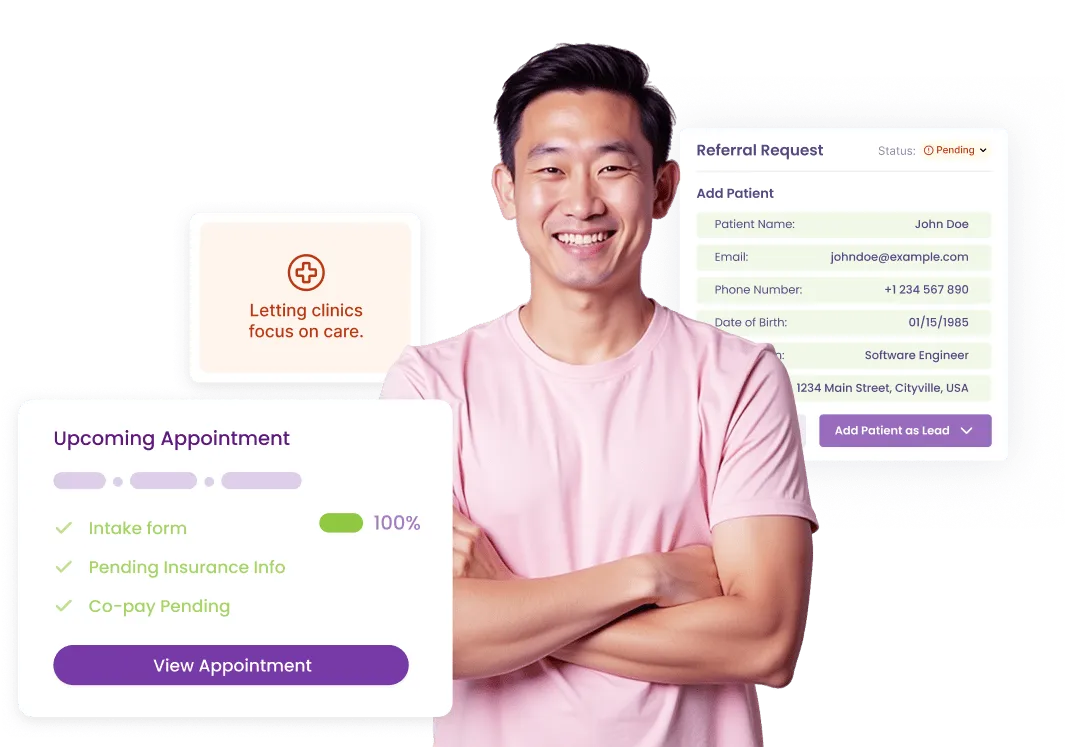90791 – Behavioral Health Assessment / Diagnostic Service
CPT code 90791 represents a distinct mental or behavioral health service, including evaluation, therapy, or care coordination.
What is CPT
90791
?
90791 is a CPT code designated for the provision of psychiatric diagnostic evaluations. This entry elaborates on the clinical purpose of the code, documentation requirements, and considerations for billing compliance. It is essential for providers to ensure that clinical notes reflect evidence-based interventions, clearly outline treatment goals, document interventions employed, and track measurable progress. In instances where the code is billed based on time, accurate recording of start and stop times is crucial to substantiate the billed duration and align with payer expectations.

Documentation Tips
When billing for time-based psychotherapy, it is imperative to document both start and stop times to provide a clear record of service duration. Include specifics such as the therapeutic modality used (e.g., cognitive-behavioral therapy, psychodynamic therapy) or the assessment instrument administered, alongside the clinical focus, patient responses, and plans for follow-up care. For standardized assessment tools, retain copies of completed instruments as part of the patient's record. In telehealth scenarios, ensure that consent is documented, along with details of the platform utilized for the session. Adopting a consistent structure, such as SOAP (Subjective, Objective, Assessment, Plan) or DAP (Data, Assessment, Plan), will facilitate audit readiness and enhance documentation quality.

At a Glance
- Service Type: Psychiatric Assessment
- Use Case: Diagnostic Evaluation / Testing
- Typical Setting: Outpatient clinic or telehealth (depending on payer guidelines)
- Billing Unit: Per session / per instrument (may vary based on specific codes)
- Common Pairings: 90791, 96127, psychotherapy codes such as 90832, 90834
Billing Examples
For instance, a clinician might employ the PHQ-9 to evaluate a patient for depressive symptoms; the completed scoring tool should be documented and billed accordingly under 90791. In another scenario, a clinician may administer a series of standardized neuropsychological tests following established protocols that include administration, scoring, and interpretation, which justifies the use of assessment codes. Each of these instances emphasizes the necessity for precise documentation that correlates with the services rendered and the codes billed.
Compliance Guidelines
- Before billing, confirm payer coverage and authorization requirements; this step is crucial for minimizing claim denials.
- Document medical necessity thoroughly, linking services rendered to relevant ICD-10 diagnoses to support claims.
- Utilize appropriate modifiers, such as modifier 95 for telehealth services, as required by specific payer policies.
- Avoid the practice of upcoding; select codes that accurately reflect the documented time and level of service provided.
- Conduct regular audits of billing practices and documentation to reduce the likelihood of denials and improve overall documentation quality.
Common ICD-10 Codes
Helpful links for mental health billing and documentation
- F32.9
- F41.1
- R45.0
- Z13.89
- F90.0
Additional Resources
Helpful links for mental health billing and documentation
Related CPT Codes
Helpful links for mental health billing and documentation
Got questions? We’ve got answers.
Need more help? Reach out to us.
Q1: What is the primary purpose of this code?
A: The 90791 code is specifically utilized when the clinical activity conducted aligns with the definition of a diagnostic evaluation; it is crucial that the documentation supports the billed service accurately.
Q2: Is telehealth billing permitted for this service?
A: Yes, many payers will cover telehealth services as long as the session is conducted synchronously and all required modifiers and consent are duly recorded. Always verify individual payer policies to ensure compliance.
Q3: What specific documentation might payers request for this code?
A: Payers may request documentation detailing the duration of the service, the therapeutic techniques or assessment instruments utilized, patient responses during the session, and a direct connection to a covered ICD-10 diagnosis.
Q4: Can this code be billed in conjunction with other services?
A: Yes, when billing multiple services, it is essential to document distinct time spent on each service and provide justification for each billed code. Use add-on codes or follow evaluation and management (E/M) separation rules as applicable.
Q5: What are some common reasons for claim denials associated with this code?
A: Common denial reasons may include incomplete documentation of time spent, insufficient evidence of medical necessity, incorrect use of modifiers, or billing that exceeds frequency limits set by payers.

